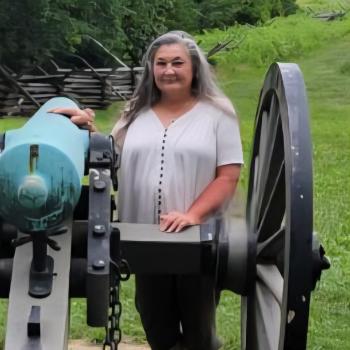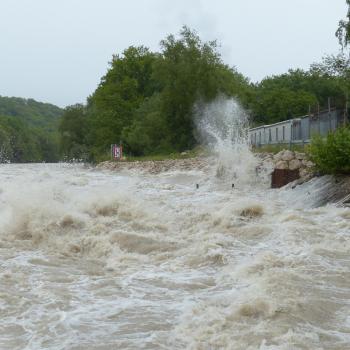
Sometimes the Best Response to God is to Make Haste
We are all quite familiar with the fact that we can find rest and peace in Jesus. He promises us that. Words we use are abide in Him, stand firm, be steadfast. However, sometimes God has a different message, a different plan, and a different method. Sometimes the best response to God is to Go! Hurry! Make haste!
Don’t Make Haste … Sometimes
There are scriptures that warn against haste:
Proverbs 1:16: For their feet run to evil, and make haste to shed blood.
Isaiah 59:7: Their feet run to evil, and they make haste to shed innocent blood: their thoughts [are] thoughts of iniquity; wasting and destruction [are] in their paths.
Proverbs 19:2 Desire without knowledge is not good– how much more will hasty feet miss the way!
Clearly, haste can lead to problems. However, there are some moments when it seems to be the best reaction.
Do Make Haste … Sometimes
When the Hebrews Left Egypt
One of the first indications of going with haste is in Exodus 12:10-11:
“Do not leave any of it till morning; if some is left till morning, you must burn it. This is how you are to eat it: with your cloak tucked into your belt, your sandals on your feet and your staff in your hand. Eat it in haste; it is the Lord’s Passover.”
In those verses, the Hebrews are preparing to eat the first Passover meal. The lamb has been cooked, the blood is on the doorframe, and the time to leave, and leave quickly has nearly come. Hesitation was not an option.
Another instance of making haste (and I never noticed the word in these verses before) tells about Mary, the mother of our Lord, newly pregnant and possibly suffering a little doubt. Let’s face it, I would be. Nothing like that had ever happened before. So God sent her to a place where she would receive comfort and confirmation–even validation:
When Mary Went to Elizabeth
“At that time Mary got ready and hurried to a town in the hill country of Judea, where she entered Zechariah’s home and greeted Elizabeth. When Elizabeth heard Mary’s greeting, the baby leaped in her womb, and Elizabeth was filled with the Holy Spirit. In a loud voice she exclaimed: ‘Blessed are you among women, and blessed is the child you will bear! But why am I so favored, that the mother of my Lord should come to me? As soon as the sound of your greeting reached my ears, the baby in my womb leaped for joy. Blessed is she who has believed that the Lord would fulfill his promises to her!’”
Not only was Elizabeth also experiencing a similar miracle, but she recognized Mary’s miracle in the first moment they met! Elizabeth’s reaction would have cast off any doubts that Mary might have been experiencing, because it was only by the Holy Spirit that Elizabeth could have received that revelation.
When the Shepherds Went to Bethlehem
In Luke 2:15-16, another group makes haste. They were out on a hillside in the still of night, when all of a sudden they were surprised by heavenly visitors announcing the birth of Messiah!
“When the angels had left them and gone into heaven, the shepherds said to one another, ‘Let’s go to Bethlehem and see this thing that has happened, which the Lord has told us about.’ So they hurried off and found Mary and Joseph, and the baby, who was lying in the manger. When they had seen him, they spread the word concerning what had been told them about this child, and all who heard it were amazed at what the shepherds said to them.”
They didn’t wait until morning when the next shift came to work. They didn’t look for someone to keep an eye on the flock. They must have been pretty convinced to walk off the job to go into town to see a baby. They also must have been exited–they went with haste.
When Joseph Took Mary and Jesus to Egypt
The direction in this next passage is even more intense than make haste. Part of the same narrative, as the Wise Men came and went from their visit to the infant Jesus and His parents, they were warned not to return to Herod since Herod had murder on his mind. Then Joseph was told to flee–don’t waste any time!
“After the wise men were gone, an angel of the Lord appeared to Joseph in a dream. ‘Get up! Flee to Egypt with the child and his mother,’ the angel said. ‘Stay there until I tell you to return, because Herod is going to search for the child toRevelation.
Flight was necessary to save the infant Jesus from the murderous orders of Herod.
When Mary the Sister of Lazarus Went to Jesus
John 11:28: Here’s another one I never noticed:
Mary and Martha called for Jesus to let Him know that Lazarus was sick and needed Him. Jesus did not rush to Lazarus’ side, and as we know, Lazarus died. Four days later, after Lazarus was already sealed in the tomb, Jesus came to town and Martha went out to meet him. She had a conversation with Him, then called Him Messiah.
“After she said this, she went and spoke privately to her sister Mary, ‘The teacher is here and he’s calling for you.’ When Mary heard this, she got up quickly and went to Jesus. He hadn’t entered the village but was still in the place where Martha had met him. When the Jews who were comforting Mary in the house saw her get up quickly and leave, they followed her. They assumed she was going to mourn at the tomb.
She went in haste to the only one who could heal her grief, and we know that He did exactly that.
When the Samaritan Woman Went to the Well
John 4:7-30 tells the story of another hasty woman:
“When a Samaritan woman came to draw water, Jesus said to her, ‘Will you give me a drink?’ (His disciples had gone into the town to buy food.)
“The Samaritan woman said to him, ‘You are a Jew and I am a Samaritan woman. How can you ask me for a drink?’ (For Jews do not associate with Samaritans.)
“Jesus answered her, ‘If you knew the gift of God and who it is that asks you for a drink, you would have asked him and he would have given you living water.’
“‘Sir,’ the woman said, ‘you have nothing to draw with and the well is deep. Where can you get this living water? Are you greater than our father Jacob, who gave us the well and drank from it himself, as did also his sons and his livestock?’
“Jesus answered, ‘Everyone who drinks this water will be thirsty again, but whoever drinks the water I give them will never thirst. Indeed, the water I give them will become in them a spring of water welling up to eternal life.’
“The woman said to him, ‘Sir, give me this water so that I won’t get thirsty and have to keep coming here to draw water.’
“ He told her, ‘Go, call your husband and come back.’
“‘I have no husband,’ she replied.
“Jesus said to her, ‘You are right when you say you have no husband. The fact is, you have had five husbands, and the man you now have is not your husband. What you have just said is quite true.’
“‘Sir,’ the woman said, ‘I can see that you are a prophet. Our ancestors worshiped on this mountain, but you Jews claim that the place where we must worship is in Jerusalem.’
“‘Woman,’ Jesus replied, ‘believe me, a time is coming when you will worship the Father neither on this mountain nor in Jerusalem. You Samaritans worship what you do not know; we worship what we do know, for salvation is from the Jews. Yet a time is coming and has now come when the true worshipers will worship the Father in the Spirit and in truth, for they are the kind of worshipers the Father seeks. God is spirit, and his worshipers must worship in the Spirit and in truth.’
“The woman said, ‘I know that Messiah is coming. When he comes, he will explain everything to us.’
“Then Jesus declared, ‘I, the one speaking to you—I am He.’
“Just then his disciples returned and were surprised to find him talking with a woman. But no one asked, ‘What do you want?’ or ‘Why are you talking with her?’
Then–here it is– leaving her water jar, the woman went back to the town and said to the people, ‘Come, see a man who told me everything I ever did. Could this be the Messiah?’ They came out of the town and made their way toward him.”
The Samaritan woman lived a life of shame and condemnation, so much so, that she went to the well in the middle of the day, and not in the morning with the other women. It’s a fact, women can be pretty judgemental and cliquish. Then after she had experienced the presence of the Messiah, she forgot about all that shame. She even forgot her water jar as she hastened off to tell anyone who would listen–even the men! She forgot about the mundane in the brilliant light of the Extraordinary!
When the Tomb Was Empty
One last exampleI will mention is John 20 has several hurrying to see The best sight they ever saw:
“Early on the first day of the week, while it was still dark, Mary Magdalene went to the tomb and saw that the stone had been removed from the entrance. So she came running to Simon Peter and the other disciple, the one Jesus loved, and said, ‘They have taken the Lord out of the tomb, and we don’t know where they have put him!’
“So Peter and the other disciple started for the tomb. Both were running, but the other disciple outran Peter and reached the tomb first. He bent over and looked in at the strips of linen lying there but did not go in. Then Simon Peter came along behind him and went straight into the tomb. He saw the strips of linen lying there, as well as the cloth that had been wrapped around Jesus’ head. The cloth was still lying in its place, separate from the linen. Finally the other disciple, who had reached the tomb first, also went inside. He saw and believed. (They still did not understand from Scripture that Jesus had to rise from the dead.) Then the disciples went back to where they were staying.
“Now Mary stood outside the tomb crying. As she wept, she bent over to look into the tomb and saw two angels in white, seated where Jesus’ body had been, one at the head and the other at the foot. They asked her, ‘Woman, why are you crying?’
“‘They have taken my Lord away,’ she said, ‘and I don’t know where they have put him.’ At this, she turned around and saw Jesus standing there, but she did not realize that it was Jesus. He asked her, ‘Woman, why are you crying? Who is it you are looking for?’
“Thinking he was the gardener, she said, ‘Sir, if you have carried him away, tell me where you have put him, and I will get him.’
“ Jesus said to her, ‘Mary.’
“She turned toward him and cried out in Aramaic, ‘Rabboni!’ (which means Teacher).
“Jesus said, ‘Do not hold on to me, for I have not yet ascended to the Father. Go instead to my brothers and tell them, I am ascending to my Father and your Father, to my God and your God.’
“Mary Magdalene went to the disciples with the news: ‘I have seen the Lord!’ And she told them that he had said these things to her.”
Grief was dispelled and hope was restored as those who knew Jesus went to the empty tomb.
When He Calls You to Be Still or to Make Haste
If you are in need of salvation, “[Jesus] says, ‘In the time of my favor I heard you, and in the day of salvation I helped you.’ I tell you, now is the time of God’s favor, now is the day of salvation” (2 Corinthians 6:2). When He calls to you, make haste!
Indeed, there are times when we are instructed, “Peace. Be still.” Other times we are told to move. Ask, seek, knock, are all verbs. The Great Commission tells us to “Go!” Because the people in the passages above were willing to go, and even to make haste, they found deliverance from bondage, from fear, from guilt and shame, from grief, and even from death.
Has God ever told you to go in haste? Maybe it was to help a loved one; maybe it was to minister to the lost; maybe it was to intercede in prayer or pick up a prescription or babysit a child. If He says “Go!” you should do it. He has planned great exploits for you!
I’m reminded of a song by Rita Springer and Vineyard Worship:
If You say go, we will go
If You say wait, we will wait
If You say step out on the water
And they say it can’t be done
We’ll fix our eyes on You and we will come
Listen here: https://www.youtube.com/watch?v=jejv_GAY2CI
God bless you as you go in stillness or in haste.













